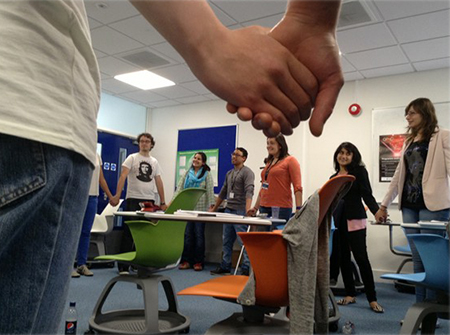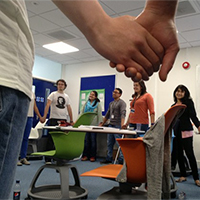 The LA³NET and oPAC networks offer training to approximately 40 early career researchers at institutions across Europe
The LA³NET and oPAC networks offer training to approximately 40 early career researchers at institutions across Europe
The European Commission has announced that a University of Liverpool researcher training scheme is a model of ‘best practice’ for providing future generations of scientists and engineers with the skills to produce world-class research.
Led by Professor Carsten Welsch, from the University’s Department of Physics, the researcher skills training course has been developed as part of several EU-funded networks to support researchers in understanding their role in R&D projects and providing them with a solid basis for their future careers.
Professor Welsch, Associate Director of the Cockcroft Institute, said: “The development of so-called ‘complementary skills’, covering areas such as project management, presentation skills, scientific writing and working within international networks, is very important for the next generation of researchers to be competitive in the global job market.
“We ask all course participants to define milestones and deliverables for their research projects and provide them with critical feedback on presentations and a structured approach to writing high impact research articles.”
So far, the skills training has been offered to groups of researchers within the European DITANET (Diagnostic Techniques in Particle Accelerators), LA³NET (Laser Applications at Accelerators – a Marie Curie Network) and oPAC (Optimization of Particle Accelerators) networks – all coordinated by the University of Liverpool – as well as to PGR students in the School of Physical Sciences.
The LA³NET and oPAC networks, which offer training to approximately 40 early career researchers at institutions across Europe, were identified as a ‘success story’ in Europe by the EC in a number of key areas, including research and development (R&D) results, project dissemination, event organization, as well as project management and coordination.
The Higher Education Academy (HEA) will host a national workshop on the ‘Liverpool model’ in PGR researcher skills training at the Cockcroft Institute on 11th February 2014. Staff and students who are interested in attending should contact Professor Welsch for registration.
